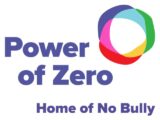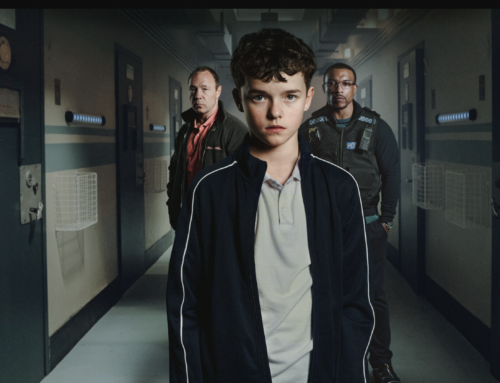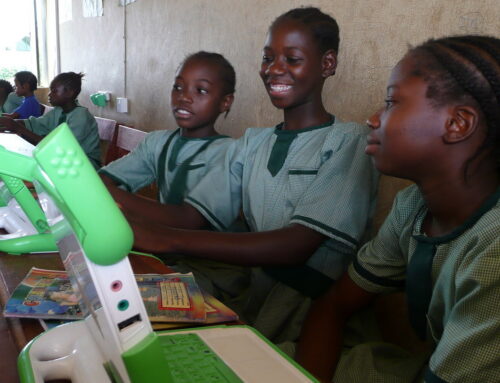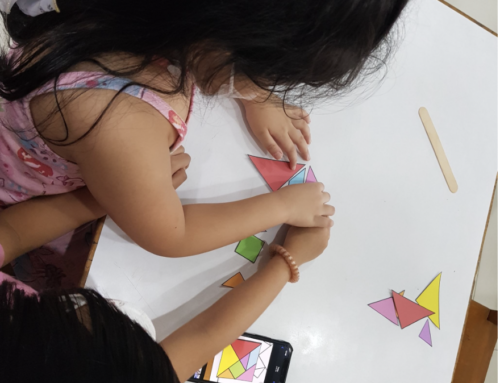When parents and teachers first learn that a child is being bullied, it can sometimes be too late. Nicholas Carlisle talks with filmmaker, father and former victim of bullying, Dr Thomas Keith, about his award winning film Bullied. Shining a light on the dark places that bullying can take children, he talks to parents and experts determined to make a difference and be part of the solution.
Nicholas Carlisle (NC): Bullied explores bullying and the dark places where it can lead. What drove you to make this film and what was your biggest learning from talking to experts and those directly affected?
Dr Thomas Keith (TK): Bullying is a problem about which I’ve long been concerned. Like millions of people on this planet, I experienced being bullied when I was a kid – but that doesn’t mean I knew a lot about it. I talked to a lot of people and learned about some serious, chronic bullying episodes. I discovered that often the parents had no idea that their child was being bullied. A lot of times, kids won’t talk to their parents about this. The only people knowing about it were their friends and most of the time they’re not going to intervene on the matter.
As an academic, my instinct was to interview experts who had done work in the area and had longitudinal evidence to reference. Each segment of the film speaks to an aspect of bullying – why kids bully, the consequences, the programs which have worked well and those that haven’t. I found a lot of consensus between the experts – agreement on the causes and programs that are working.
NC: Which students did you find were most at risk of being bullied?
TK: It was clear that certain groups are targeted more often. For instance, LGBTQ students were highly targeted, and that’s really just because they are seen as different.
But it could be for anything that marks a kid out. The first episode of the film is about a boy named Ty being bullied just because he was short. He never fought back because the bullies were bigger than him. I spoke with his father, Kirk, in Oklahoma – that was an emotional interview. Kirk is 6’5” tall and his son was only 12 at time, so a growth spurt was coming at some point, but it seemed Ty couldn’t last that long. The day he finally pushed back, a teacher came by and both he and the bullies got in trouble. Ty was sent home; this had never happened to him before.
NC: Ty’s school didn’t understand what was happening and so punished him as well – I think that’s what resulted in him taking his own life?
TK: Ty thought he was in trouble because he had been sent home from school. This proved too much for him. Kirk was at work when his wife called to say that she had found their son. In the wake of that, Kirk tried to get answers from the school – did they know what was going on, what sort of interventions were being done. He wasn’t getting answers he thought were helpful. And this, as you can understand, is why parents litigate in these situations. They feel the school isn’t doing enough to safeguard their child.
NC: These tragic outcomes will have people questioning, should a kid like Ty learn to physically protect themselves from bullies?
TK: It’s really a myth that fighting the bullies will teach them a lesson and they will go away. It’s a myth that movies like to push on us. I’m thinking of the first Spiderman series, where he fights and defeats the bully, or a Christmas Story, the classic movie where the kid finally stands up to the bully and beats him up. In real life it’s not so easy. Bullies pick on kids when they feel they can get away with it – rarely do they pick on someone who can fight back. I often see feedback from people who say ‘teach the child karate’. Clearly there’s a real lapse of understanding of what children are up against.
NC: Bullied is an emotionally charged documentary. What was the emotional impact on you and how did you handle it?
TK: It was a rough film to make. There were days when I needed to take a break and walk away. Sometimes I would just weep. Meeting the parents was intense. They spoke of a loss that’s unimaginable. But beyond that, they spoke with me because they wanted to help. Not wanting this to happen to other parents, some have turned their lives into lives of activism and as a father, I got strength from that – the fact that they were trying to make change and be part of the solution. Kirk, for example, went on to found Stand for the Silent, an international anti-bullying organization formed by parents who lost children to suicide.
But while it was taking an emotional toll on me, I felt that I had to do it. When talking to people who are trying to change the culture of bullying, you learn that statistics don’t move people to action. To inspire action, you have to make people feel, to connect them to what’s happening. This could happen to any child, maybe their own. I wanted to make a film that created a real emotional impact so I could bring that message home.
NC: We have found the same when we train teachers in the No Bully program. We need educators to feel the pain of the students being bullied if we are going to motivate them to go that extra mile and ensure that their classrooms and their schools are bully-free.
Thank you for going into this darkness. You have made an important documentary. But as I watched it – and especially the clips of President Trump mocking the journalist for being disabled – I imagined that you risked criticism for creating yet another Trump bashing, covert liberal film.
TK: I need to be clear, this film is not political. If it had been a democrat behaving this way, they would have made it into the film as an example of modeling bad behavior to others.
It’s hard to deny that Trump acted like a bully throughout much of his term as President. And the truth is, like it or not, leaders matter. They are role models. People listen to them, and with the President, well, there’s no bigger platform. So, and when the President models bullying they validate the behavior.
As one of the interviewees said, it’s not just the kids, it’s the parents, coaches, adult leaders who see this bullying behavior – the name calling, the condescension. This then becomes an acceptable way to behave. If he wasn’t President, but say a council member, there might have been little impact. But this was the US President, in front of cameras 24/7 showing, and getting away with, this behavior. This film is not about politics but about our behaviors and our influence over others.
NC: There is research out there that validates your concern. In the aftermath of the brutal 2016 presidential election, Southern Poverty Law Center tracked what they called the Trump Effect and found a significant rise in bullying against students with immigrant status.
You have made a really powerful film, and I have no doubt that it was a labor of love for you. What’s your greatest hope for its future?
TK: I’m hoping that I can create a global conversation and people take bullying seriously. I’m afraid people my age may not always see it as a big deal. You often hear, ‘when I was a kid…’ but bullying has transformed since we were young. Back then it might have been some name calling and pushing in the locker room. But that’s not what’s happening here – kids now are being targeted online and often in a very public way. Bullies can share compromising images or cruel messages that spread rapidly on social media. Cyberbullying is new to this generation, something that we didn’t have to deal with. It means the bullying never goes away and they’re haunted by it like a constant torture.
My hope is that people start taking bullying seriously so that preventative initiatives can be taken seriously. Here in the US, our school districts have been a little slow to get into social and emotional learning. Those that have, show results. One district, the Cleveland Unified School District, reported a drop of a third in bullying since introducing SEL.
The benefits of preventing bullying are undeniable. When you decrease bullying, test grades start going up, graduation rates start going up, all the objective indicators that educators care about improve, for the obvious reason that kids feel safe at school.
If you’re a student who has to worry about what will happen when you leave the room and have to walk down the hall, how can you possibly learn and perform? So, the upside in reducing bullying is something that everyone claims to care about – higher grades, better GPAs, higher graduation rates, success…happiness. And that’s my greatest hope.
BULLIED, released in 2019, has garnered 12 film awards including a New York Film Award and a Los Angeles Film Award for best-picture in the documentary feature category. To stream the film (free but with ads) visit Tubi-TV. To stream without commercial breaks, watch on Amazon Prime







Leave A Comment